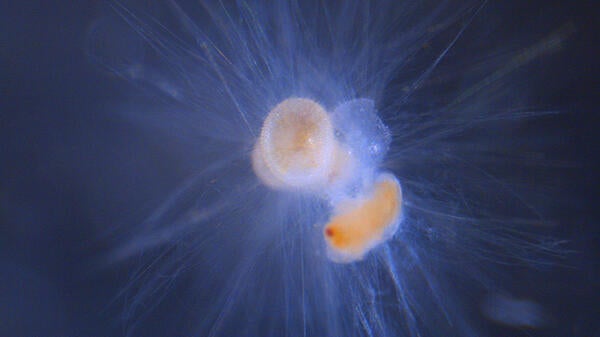We have known for decades that scientists can learn about local climate conditions by studying the growth rings in trees. Wide rings form in warmer years with more precipitation; thinner rings indicate a colder, dryer growing season; and scars provide evidence of external environmental factors, such as forest fires and insect infestations.
Enhancing Education Through Experience
January 29, 2019
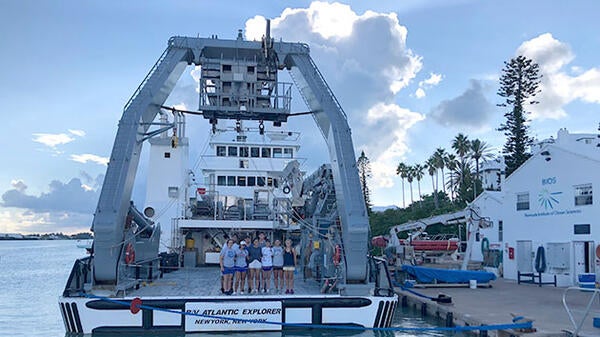
Each spring, BIOS is one of more than 350 colleges, universities, medical centers, professional organizations, and research institutions that accepts undergraduate students as part of the National Science Foundation (NSF) Research Experiences for Undergraduates (REU) program. For more than 30 years, the REU program has given U.S. students the opportunity to conduct hands-on research in science, technology, engineering, and mathematics (STEM) fields as part of their undergraduate education.
A Joint Effort on the High Seas
June 28, 2019
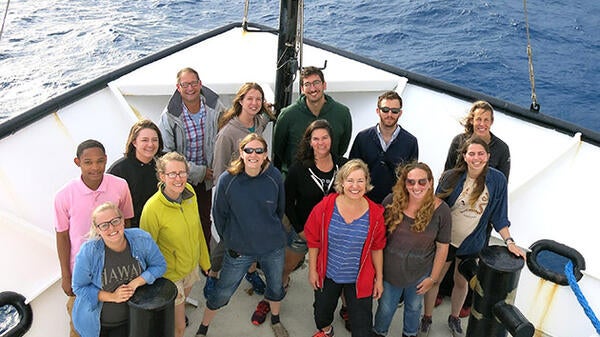
Late last month, a four-day research cruise on the Sargasso Sea gave two local educators and a senior school student the opportunity to gain unique insight into what it means to live and breathe science aboard a working research vessel. The cruise was part of a project funded by the National Science Foundation (NSF) investigating the daily migrations of small marine zooplankton called copepods.
Scientist at Work: A Conversation with BIOS Biologist Amy Maas
February 09, 2015
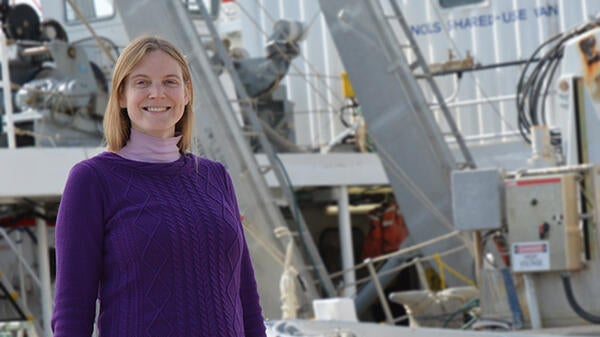
Pteropods, which live in all the world’s oceans, are tiny cousins of the snail that spend their lives swimming in open water and serving as a primary food source for larger marine life, including salmon, sharks, and whales. With their delicate shells, pteropods are also in peril from increases in ocean acidity, said biologist Amy Maas, a champion for pteropods. The changing ocean chemistry caused by burning fossil fuels is reducing the mineral that pteropods use to build their shells, causing slower shell growth and rendering them weak and fragile.
Capturing the Beauty of Underwater Flight
May 29, 2019
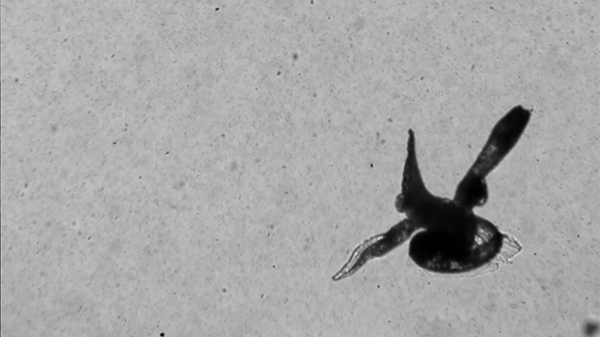
In mid-May artist Samm Newton drew the tubular mouthpiece, transparent shell, and delicate swimming foot of a heteropod from the Sargasso Sea, a type of tiny sea snail studied by BIOS biologist Amy Maas and collaborator David Murphy from the University of South Florida. Newton spent several hours repeatedly watching the video to reconstruct the creature’s anatomy. Her sketches will form the base of a series of much larger acrylic paintings destined for an upcoming Oregon-based art exhibit.
A Semester Abroad at BIOS
January 26, 2020
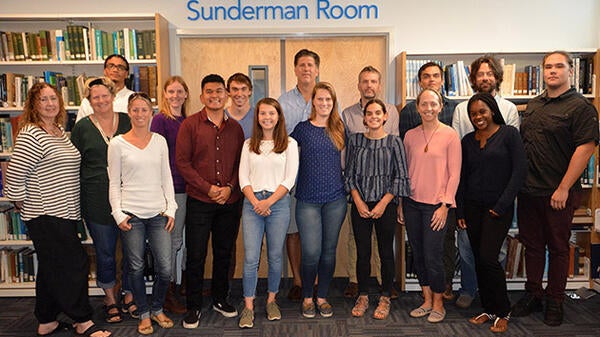
Since 1987, the National Science Foundation (NSF) has funded a research internship for undergraduate students called the Research Experiences for Undergraduates (REU) program. The internships, which usually run for 10 to 12 weeks, are hosted at universities, research institutions, and professional scientific organizations and allow participants to work alongside faculty members and scientists on research projects in a wide range of science, technology, engineering, and mathematics (STEM) fields.
Institutes Team Up To Deliver New Graduate Field Course
February 27, 2020
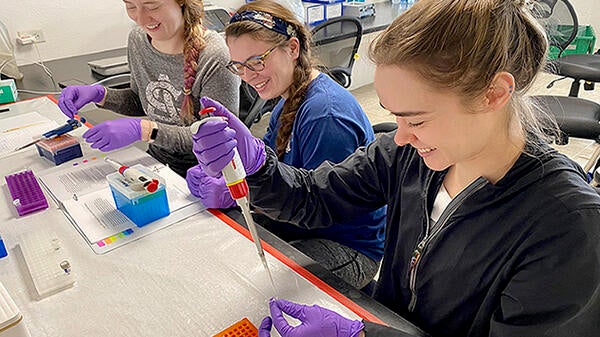
A partnership between BIOS and two Massachusetts-based institutions was strengthened with the addition of a new microbial oceanography course, held for the first time at BIOS in January.
BIOS Scientists Gather for Ocean Sciences Meeting
March 30, 2020
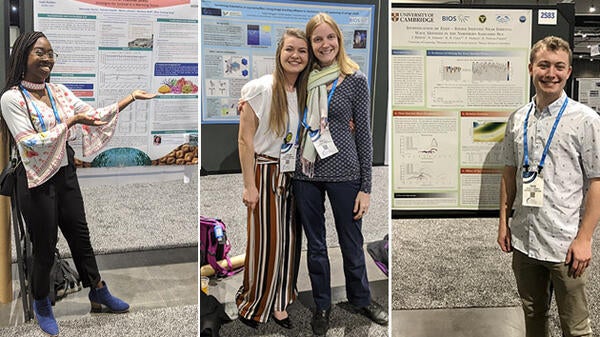
Researchers and students representing BIOS gathered in San Diego, California, in mid-February to participate in the biennial Ocean Sciences meeting. The flagship conference, held jointly by the Oceanography Society, the American Society of Limnology and Oceanography, and the American Geophysical Union, attracted nearly 5,000 scientists, managers, and educators from around the globe.
BIOS Scientist and Board Member Supports Doctoral Student’s Research
June 30, 2020
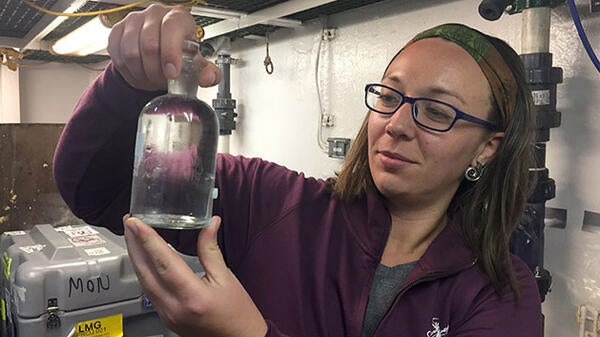
Scientific conferences are an important, if not essential, part of a scientist’s life, both in academic and applied research. These gatherings, which often take place on an international scale, offer attendees the chance to learn about novel research, give presentations on their own research, and develop professional collaborations that can result in publications and funding opportunities.
For BIOS Scientists and Staff, an Unprecedented Challenge
May 28, 2020
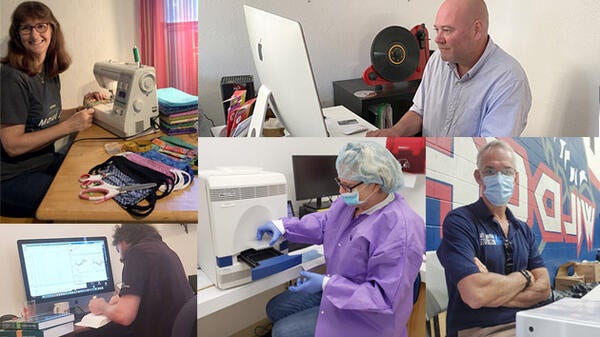
The global health emergency has deferred or shut down many areas of marine science research since March, including at BIOS, forcing scientists and staff to change how and where they work—all while in the midst of uncertainty regarding how their research and teaching will continue.
